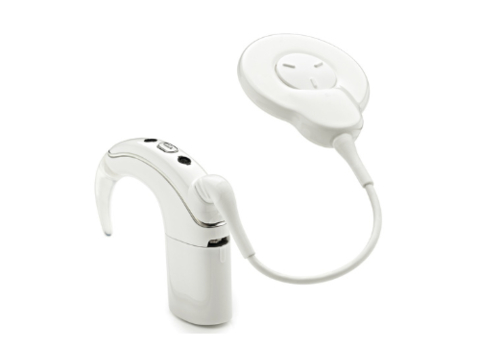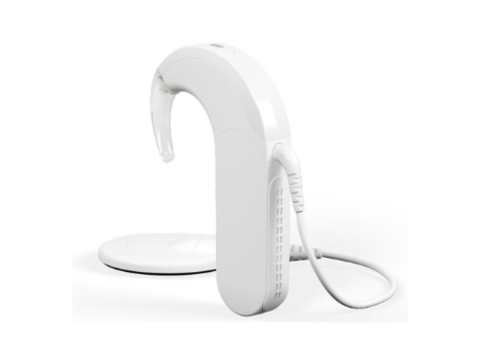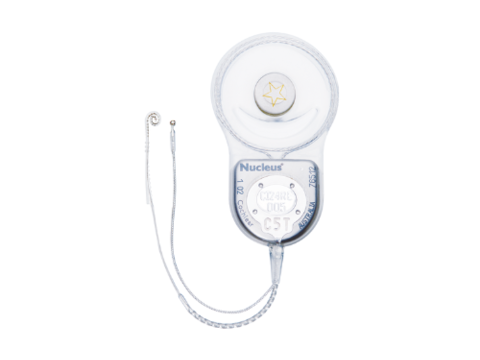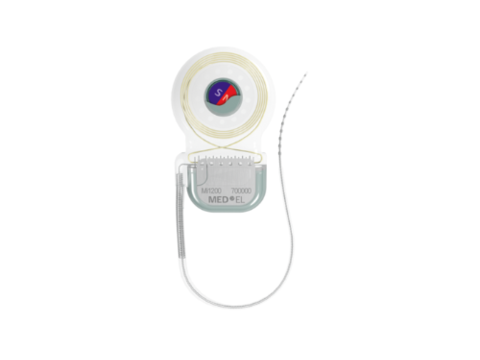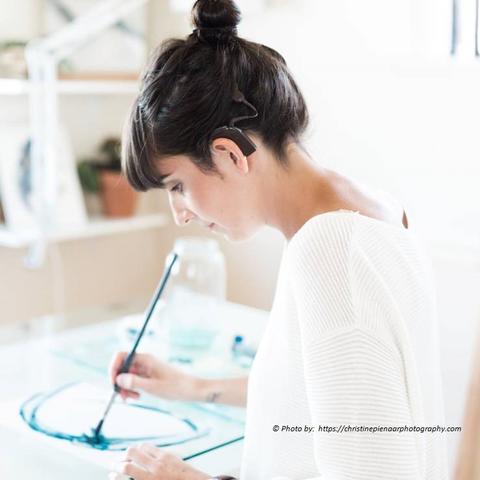Cochlear implant
Learn more about what to expect during a cochlear implant procedure.
Overview
A cochlear implant is a medical device that can improve hearing for people with significant hearing loss. It does not cure hearing loss. Instead, it can help you regain access to sound. With time and practice, many cochlear implant recipients can learn to understand speech and recognize sounds.
The BC Adult Cochlear Implant Program at St. Paul’s Hospital provides cochlear implant services to adults in British Columbia and the Yukon. We provide candidacy testing, surgery and life-long cochlear implant rehabilitation support.
We also help patients from the BC Children's Hospital Cochlear Implant Program when they turn 18.
How a cochlear implant works
A cochlear implant has two parts:
If you receive a cochlear implant, you should know that learning to understand the sounds you hear through it takes time. We cannot guarantee how well you will hear. However, most cochlear implant recipients learn to hear better than they do with their hearing aids.
Factors that affect how well you hear include:
- How long you have had hearing loss.
- How long you have worn hearing aids.
- The age you were when you lost your hearing.
- Whether you lost your hearing before or after learning to speak.
- Your main way of communicating (speech or sign language).
- The cause of your hearing loss.
- If you have any cognitive or mental health issues, like dementia or depression.
Eligibility requirements
To be a candidate for cochlear implants, you must:
- Be 18 years or older.
- Have moderate (low frequencies) to severe sensorineural hearing loss in at least one ear.
- Get little benefit from well-fitted hearing aids.
- Demonstrate poor speech recognition ability.
- Be motivated and have realistic expectations about the cochlear implant.
- Have no medical conditions that would prevent surgery.
You can get a cochlear implant if your hearing loss is different in each ear (asymmetrical).
You can also receive implants at different times in both ears (sequential bilateral cochlear implants). This applies if a hearing aid no longer helps in your non-implanted ear.
Referral process
You will need a referral from your doctor, audiologist or hearing instrument provider.
Due to the number of referrals we receive, there is a long waitlist for Cochlear Implant candidacy assessments. During this waiting period, if hearing aids might help, you are encouraged to wear them every day before your candidacy assessment. This applies even if you have tried hearing aids and found them unhelpful.
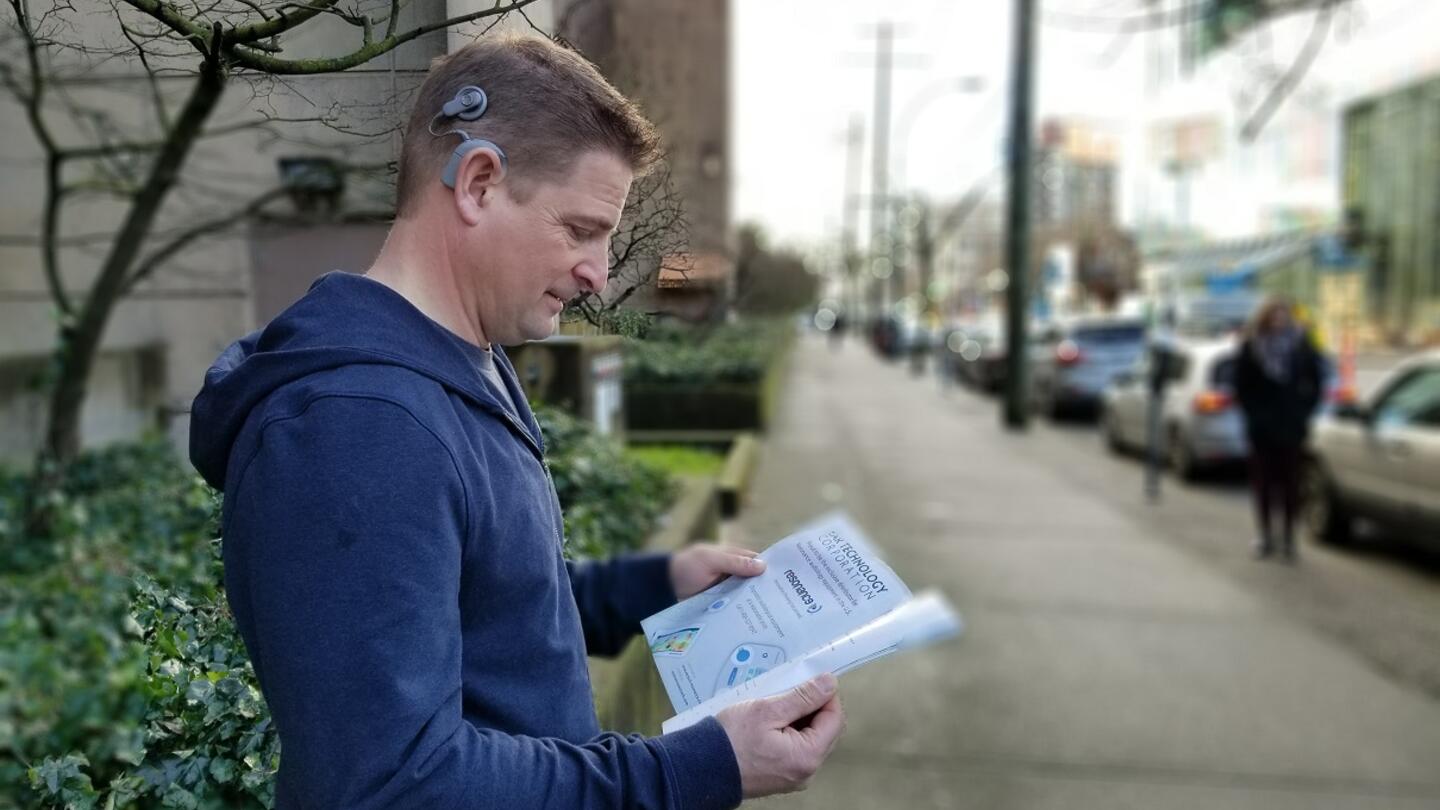
Preparing for the procedure
We will test your hearing. Testing will typically occur over a couple days.
- Bring a family member or friend for support.
- Bring your hearing aids. Make sure they are working and have been set to the right level for your hearing loss. You will need to wear them for part of your assessment.
- We will review your cochlear implant questionnaire.
- We will ask you questions about your medical history and hearing loss to understand your concerns and expectations.
During the procedure
All adult cochlear implant surgeries are performed at St. Paul’s Hospital in Vancouver.
The surgery takes approximately two hours. It is performed under general anesthetic.
You should bring:
- Your BC Services Card or Care Card
- Government-issued photo ID
- A family member or friend to comfort you.
After the procedure
Turning on your implants
Your switch-on appointment will be generally scheduled for one day (9:00 a.m. to 3:00 p.m.; hour break for lunch). Since we will share a lot of information, feel free to bring a family member or friend for support. Due to limited space, we can accommodate only two guests.
Hearing with a cochlear implant for the first time can feel confusing. It is different from normal hearing or hearing with hearing aids. You might hear sounds but not understand what they are or what they mean.
It takes time and practice to learn what the sounds from the cochlear implant mean.
Follow-up appointments
You will have follow-up appointments at one month, six months and 12 months. You will return every year for the first 3 years. After that, you will come back every 2 years.
Follow-up appointments usually last two hours. During these visits, we:
- Address any concerns you have.
- Make sure your MAPs and equipment are working well.
- Monitor your progress.
Support for Indigenous Peoples
The Indigenous Wellness Liaison Team is here to support your health journey. Team members offer cultural support and healthcare advocacy. Learn more below or call them at 604-682-2344,62937 or email IWL@providencehealth.bc.ca.
Education & resources
Patient-centred help, resources and education about cochlear implants come from many sources. Some of them listed here are supplied by Providence Health Care, but other useful resources about cochlear implants are available from the community and from online supports.
Patient education
Useful resources
Patient communities
Lower Mainland support group
This is a privately organized support group run by cochlear implant recipient, Rick Waters. Meetings are held monthly on Saturdays from 1:00 p.m. to 3:00 p.m. You can contact Bowen via email at cochlearimplantgroupbc@gmail.com.
Vancouver Island support group
This group is moderated by a volunteer CI user. You can contact idhhc@idhhc.ca for more information and to register.
Help BC Hear Better
A team of healthcare professionals, researchers, and people with hearing loss who want improved access to hearing health care in British Columbia. Learn more
Find this service near you
Medical & professional referrals
We accept referrals from family physicians, otolaryngologists, registered audiologists and registered hearing instrument practitioners.
To be eligible, patients must be 18 years or older and have:
- Moderate (in the low frequencies) to profound sensorineural hearing loss in either both ears or single-sided deafness.
- Limited benefit from hearing aids that are fit well.
- Demonstrate poor speech recognition ability.
- Motivation and realistic expectations of the cochlear implant.
- No medical contraindications.
Hearing loss can be asymmetrical. Bilateral sequential cochlear implantation is also available for those who no longer benefit from amplification on their non-implanted side.
